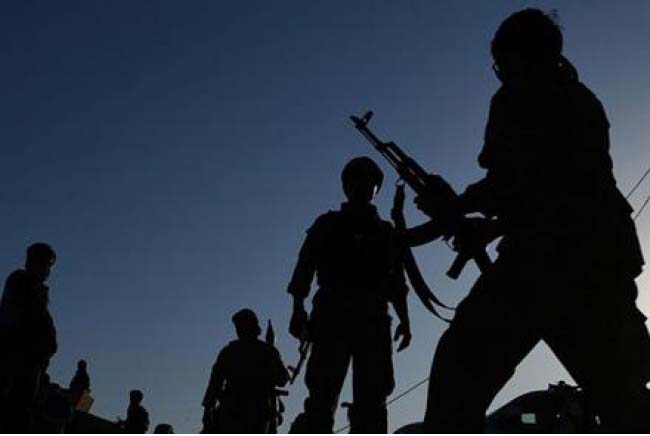The issue of terrorism has challenged not only Afghanistan but the entire world. Despite the counter insurgency, a large number of individuals were affected by terrorism from Kabul to Spain and London. However, the counter-insurgency is simply based on fighting militants without regarding the hotbed of terrorism.
Warring parties seek to reconcile their conflicting ideologies with one another so as to strengthen their factions. For instance, the Taliban and the self-proclaimed Islamic State of Iraq and the Levant (ISIL) associated with each other to intensify their attacks. Further, following the revelation of Mullah Omar’s death, Islamic Movement of Uzbekistan (IMU) – which was formed in 1998 by the Islamic ideologue Tahir Yuldashev and former Soviet paratrooper Juma Namangan and supported the Taliban in late 1990s – allied with ISIL group in 2014. Establishing the “Khorasan Province”, a number of IMU’s members, with Usman Ghazi at the helm, pledged loyalty to ISIL and changed the Taliban’s white flag into the ISIL’s black one. Members of IMU got high political position within the ISIL outfit so that the Uzbek ethnic groups both from Afghanistan and Uzbekistan notice and pledge allegiance to them. Now a member of IMU Mowayyeh is said to be the head of Khorasan Province.
Afghan nation is affected by horror and terror in some ways. The counterinsurgency is moving at a snail’s pace, whereas warring parties are changing their tactics swiftly for inflicting heavier casualties upon Afghan and foreign troops and innocent civilians.
Warring parties claim to fight for reviving religious tenets. In other words, they wage ideological war against moral turpitude or infidelity, according to them. However, it is no more a mystery that their own practices, mainly spilling the blood of innocent men, women and children, are against Islamic sharia and Prophet’s Sunnah. It is explicitly stated in the Holy Koran that whoever kills a person it is as though he has killed all mankind. And whoever saves a life, it is as though he had saved all mankind. Hence, the radical ideology and cruel practices of warring parties, including the Taliban, ISIL and IMU, are against the soul of Islam and ethical code.
To put an end to this ideological war, Afghanistan needs to take the initiative for establishing an Ulema Council. All muftis and mullahs from around the world, particularly from Afghanistan, Pakistan, Iran, Iraq, Saudi Arabia, Egypt, etc. need to form a religious council and issue fatwa (religious decree) against radicalism and all warring parties. Moreover, they have to enlighten the true soul of Islam, condemn radicalism and spread it around the world through taking role in the media and publishing magazines. That is to say, all muftis and mullahs will have to write articles in different languages against the cruel practices of Islamic fundamentalists. They should hold regular meetings in different countries to revive their commitment and adopt fresh mechanism for combating radicalism and terrorism.
The second issue the religious council needs to campaign against is cultivating narcotic drug which is one of the deciding factors behind the continuation of war and insurgency. The Taliban that claim to fight for religious reasons are supported strongly by cultivating and trafficking narcotic drug which is illegal in Islam. It is most likely that if Islamic scholars from around the world launch a campaign against cultivating narcotic drug, the backbone of terrorist networks will be broken.
Moreover, the state should dismiss those scholars who spread radicalism. Reportedly, there are some seminaries with radical instructors that implant their views in the minds of their students. I have constantly pointed out that seminaries should be under the strict control of the government and the content of their textbooks needs to be checked.
The negotiation of peace came to a stalemate since the Taliban’s radical leader Mullah Haibatullah refused to give Afghanistan the green light and allied his men with other warring parties. Besides associating with ISIL, the head of Haqqani network Sirajuddin Haqqani is his deputy which reflects the fact that Haqqani network is also fighting alongside the Taliban.
To sum up, there are two main reasons behind the protracted war in Afghanistan: First the financial resources of the militant fighters, mainly narcotic drug, are not combated strongly. Second, terrorist networks seek to find common ground for joining forces against states. To view the defeat of ISIL group in Iraq and Syria, it encountered shortage of financial resources and their tankers were targeted while smuggling oil. Moreover, there were no safe havens for ISIL in a particular country.
The world needs to share the effective strategy for combating terrorism. It goes without saying that the current traditional mechanism for combating terrorism will not mitigate the insurgency. In addition to military deal, eradicating the financial resources of terrorist networks and campaigning against their radical ideology will reduce violence to a great extent and bring them to their knees. Indeed, preaching against their ideology by religious elements will prevent the public to fall for the bogus claim of militants who are operating under the mask of sanctity.
Home » Opinion » Strategies for Combating Terrorism
Strategies for Combating Terrorism
| Hujjatullah Zia

